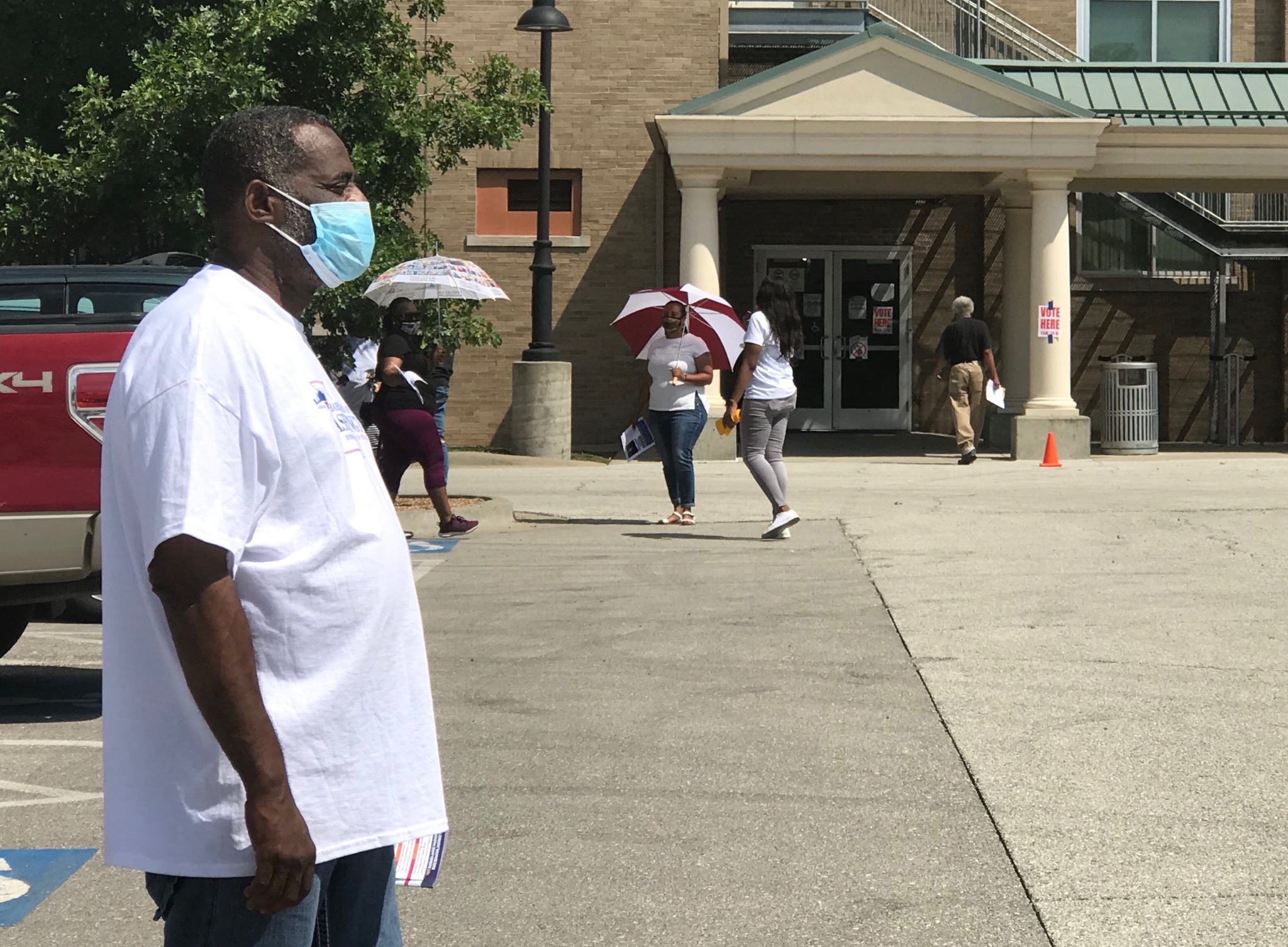Featured
Primary Election in Missouri, Kansas, and Michigan Offers Preview of Voting During Pandemic

In three states voters headed to the polls today, equipped to stay safe during the global pandemic by wearing masks and carrying hand sanitizers. For many, the primary election is a trial run for healthy voting in three months when the country will elect the next president.
At a polling site in Kansas City, workers said there had been a “steady flow” of voters.
“People want change now,” Donald Hughes said. “With everything that’s been going on…they’re tired. They’ve got to find something to live for.”
Hughes cited the coronavirus which has claimed the lives of more than 155,000 Americans, a disproportionate number of them African Americans. And, he pointed to the ongoing protests for social justice as another reason Black Americans are willing to risk exposure to the virus to vote.
Voters in Missouri, Kansas and Michigan will play a key role in November’s elections. But first, they will help shape the next Congress by deciding the primary winners in several Congressional races watched nationally.
Michigan Representative Rashida Tlaib, known for her passionate responses to criticism from President Donald Trump as well as membership in ‘The Squad’ which is a group of progressive Congresswomen. Tlaib faces a tough challenger in Brenda Jones, president of the Detroit City Council, who lost to Tlaib in 2018.
In St. Louis, longtime incumbent Congressman William Clay is also facing a rematch from progressive activist Cori Bush. Clay runs with the backing of the establishment, and the election will reveal the strength of the city’s progressive movement.
The Kansas Senate race is a possible preview of a shift in the balance of power on Capitol Hill. Kris Kobach, the former Secretary of State, is running but lacks the confidence of the GOP. If he wins the primary, many Republicans are concerned Kobach will lose the seat to a Democrat in November’s general election. Kansas hasn’t elected a Democratic Senator since 1932.
In Kansas City as voters parked their cars and walked purposely toward the ballot, workers like Teresa offered their insight on the election.
“If you really want change, you have to vote to see the change,” she said. “A non-vote is not going to change anything…if you want your representative to change, if you want your state representative to change, if you want your ward and district to change, you have to vote in these elections as well.”
And, as busy as the day proved to be, she and others predicted even more voters will participate in November.

-

 Featured10 months ago
Featured10 months agoCalifornia Is the First State to Create A Public Alert for Missing Black Youth
-

 Featured9 months ago
Featured9 months agoAfrican American Leaders Stay the Course Amid Calls for President Biden To Bow Out of Race
-

 Featured10 months ago
Featured10 months agoThe Debate Fallout Lands on Both Candidates
-

 Featured9 months ago
Featured9 months agoPresident Joe Biden Decides to Withdraw from the Presidential Race
-

 Featured9 months ago
Featured9 months agoIn One of His Final Speeches as President, Biden Says It’s Time for ‘Fresh Voices’
-

 Featured9 months ago
Featured9 months agoPresident Joe Biden Describes Shooting of Donald Trump As ‘Sick’









